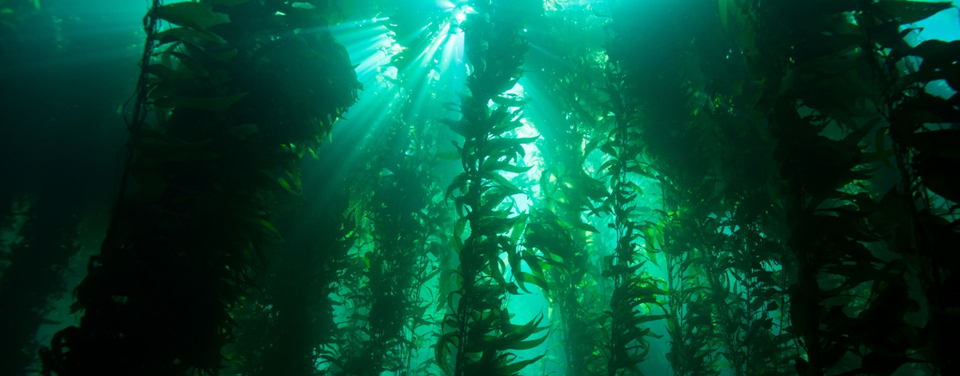A ban on the mechanical harvesting of kelp around Scotland’s coast is to be backed by the Scottish Government, putting a company’s controversial plans at risk.
Environment Secretary, Roseanna Cunningham MSP, said that she will back an amendment from the Scottish Green MSP, Mark Ruskell, to ban the practice in the Scottish Crown Estate Bill which is due to be debated at Holyrood for the final time on 21 November.
Both politicians said that the seaweed is important to Scotland’s marine environment and biodiversity, and should be protected.
Opposition to large-scale kelp collection has been intensifying following campaigning by environmental and fishing groups. Veteran naturalist, David Attenborough, also intervened, calling on the Scottish Government and other decision makers to “take the necessary action to protect these vital, and globally important, habitats.”
A petition to ban mechanical kelp harvesting in Scottish waters has attracted almost 22,000 signatures.
Underwater kelp forests provide food and shelter for hundreds of species of marine wildlife and protect coastlines from flooding and erosion. Experts have warned that mechanical harvesting would rip up the plant and prevent it re-growing.
Kelp is used in a range of pharmaceutical, food and other products, which has led to a major demand. An Ayr-based company, Marine Biopolymers Ltd (MBL), had proposed to mechanically harvest 30,000 tonnes off the west coast of Scotland.
The company claimed that its plans were sustainable and could support a £300 million industry. Kelp could be used to create “invisible armour” for the police and armed forces or make slow-release cancer drugs, it said.
Announcing the Scottish Government’s support for a ban, Cunningham described kelp as “an important part of our marine biodiversity”. She said: “Having considered amendments to the Crown Estate Bill, we intend to support Mark Ruskell’s amendment, although there are some clarifications and qualifications that require to be made.”
There were only limited circumstances in which kelp could be mechanically removed, she argued. A ban “should not extend to power stations or commercial ports or other, similar public infrastructure being prevented from removing kelp species for maintenance or for other public interest reasons and nor should it prevent appropriate research and development.”
Cunningham also made clear that the hand-cutting of kelp would not be barred, as Scottish Natural Heritage had found this form of harvesting to be sustainable.
Calum Duncan, head of conservation for the Marine Conservation Society in Scotland, said that the “sustainable hand-gathering of kelp has very careful measures in place that require the base to remain attached to the reef.”
But he pointed out that “mechanically stripping swathes of pristine kelp forest clean from the reef at the scale proposed simply cannot be considered sustainable.”
Welcoming the Scottish Government’s backing of his proposed ban, Ruskell said: “Kelp forests are hugely important to our marine environment . They dampen waves, protecting coastal communities from flooding and erosion, act as a habitat for hundreds of species, and store more carbon dioxide than the rainforest.”
He added: “Greens have been working extremely hard to ensure that the practice of dredging for kelp is prohibited in legislation, and I am delighted that the Scottish Government will now back my proposals to save Scotland’s kelp forests.”
Delighted @strathearnrose has announced @scotgov will be supporting my amendment on kelp tomorrow with a wider review of licensing including kelp farming. It’s important new economic opportunities flourish but they have to be on a truly sustainable basis. #nokelpdredge
— Mark Ruskell (@markruskell) November 20, 2018
Tom Shields, chairman of industry body Chemical Sciences Scotland, argued that a ban could harm Scotland’s competitive edge for science-based businesses.
“Businesses need to be confident that government regulatory processes will be upheld,” he said. “Without that confidence, Scotland won’t be considered a competitive place to build a science-based business and we’ll lose future investment opportunities to other countries.
MBL has been approached for comment. The company has previously warned that a ban could halt its plans for harvesting kelp.
Photo thanks to US National Oceanic and Atmospheric Administration, CC BY 2.0.














